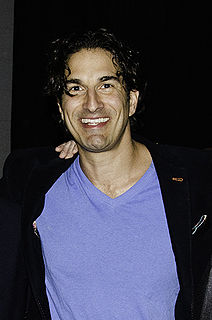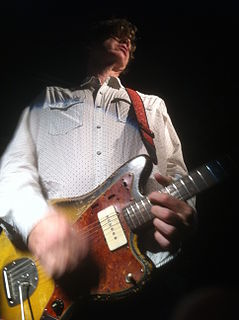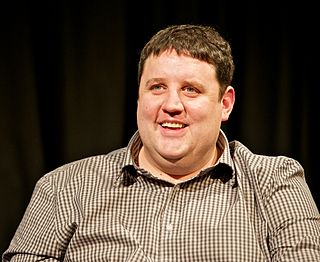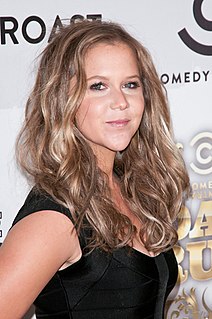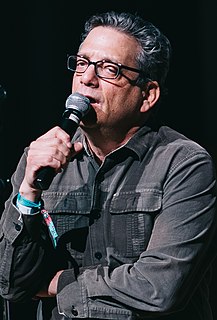A Quote by Gary Gulman
There are certain jokes that indicate how mainstream a comic is. If you're talking about how the side effects of drugs that they advertise on TV are worse than the actual illness they're supposed to prevent, that's like the hackiest joke out there now. If you're still doing that joke, that usually is an indicator of being mainstream, in a bad way.
Related Quotes
I'm really going off of watching John Waters speak one time and I remember he just kind of talked and it was totally interesting. I wanted to hear about his life and how he got started and when did he think he made it, stupid stuff like that. And what his relationship with the mainstream is because he's so far out there, but then he became part of the mainstream in this weird way. He was really funny, though. Yeah, I have to work on my jokes.
Whether these were liberal publications or conservative publications, whether they were mainstream or slightly to the side of the mainstream; out of the mainstream, they all believed that they had the right to tell you how to stylize yourself. And from the New York Times to the much more left-winged nation. And The Voice said, no, whatever you want to. You drew whatever you want to, we'll publish it. Nobody was doing that. Nobody does it today. The Voice is no longer that paper, and editorializing is now in the hands of editors, with few exceptions.
I don't like my wrestling or entertainment in general to be too clean or predictable for me as a fan. When I say clean, I'm not talking about dirty jokes, middle fingers and stuff like that. I'm actually not even a big fan of that. A lot of people talk about the attitude era being so great but a lot of it was terrible crap, sex jokes and over-the-top terrible bad comedy. It was Jerry Springer-like. They made a joke about a woman's breasts. Hilarious, but where's the wrestling? I look back on a lot of stuff now, and I'm like where's the wrestling? It's just a lot of crappy jokes.
I was on television a couple of years ago and the reporter asked me, "How does it feel being on mainstream media? It's not often poets get on mainstream media." I said, "Well I think you're the dominant media, the dominant culture, but you're not the mainstream media. The mainstream media is still the high culture of intellectuals: writers, readers, editors, librarians, professors, artists, art critics, poets, novelists, and people who think. They are the mainstream culture, even though you may be the dominant culture."
Some street jokes are just timeless. There's an old street joke about comedians. The joke is that a beautiful girl comes up to a comedian at the end of the night and says, "I saw your show tonight, and I just loved it. I want to go home with you, and I'll do anything you want." And the comedian says, "Were you at the 7 or the 9?" That's just a perfect joke, because it points out how egomaniacal and obsessive comedians are. Even though I'm not waiting for a groupie, I can completely understand it. It just defines how comedians are driven.
I'm not big on fat jokes. That's a little beneath me. I'm not a huge fan of making a joke completely at someone else's expense. Even though I think he does it better than anyone else, I don't love... Well, it's different with Sacha Baron Cohen, but that whole thing where you're "punking" people? I don't like that. I don't like doing it, and I don't particularly find it funny when the joke is on a person who doesn't know they're being set up.
